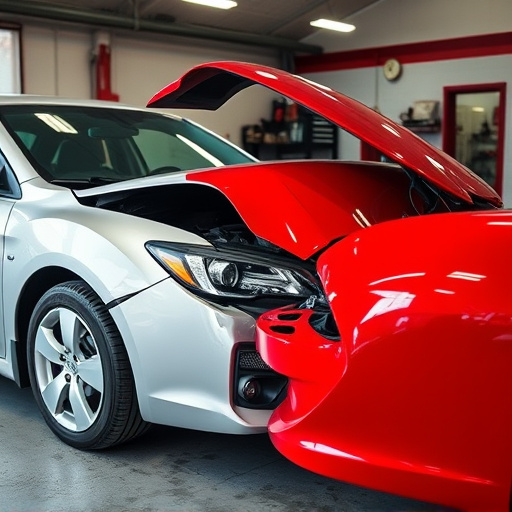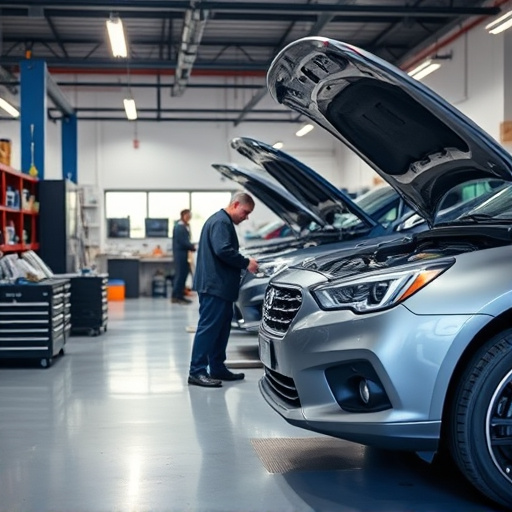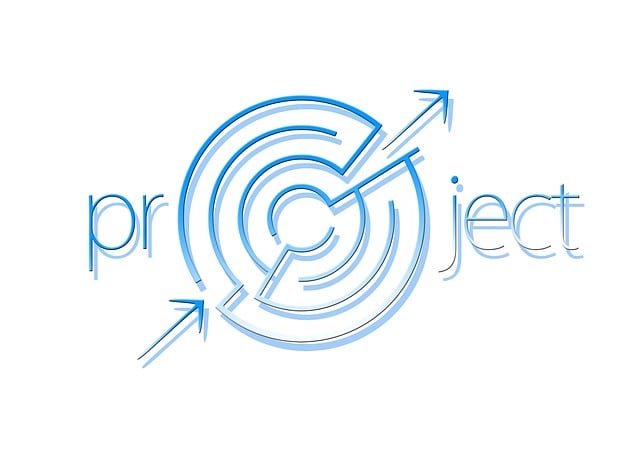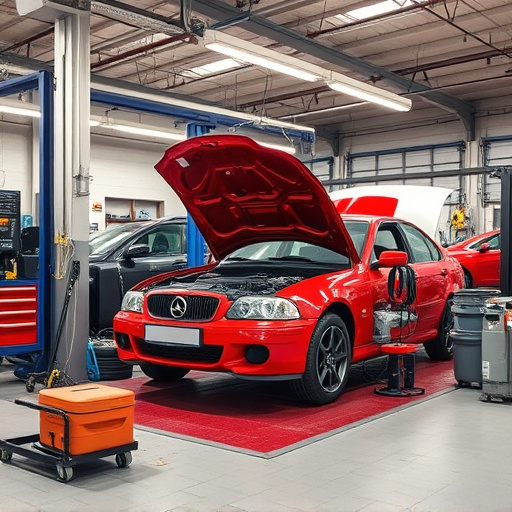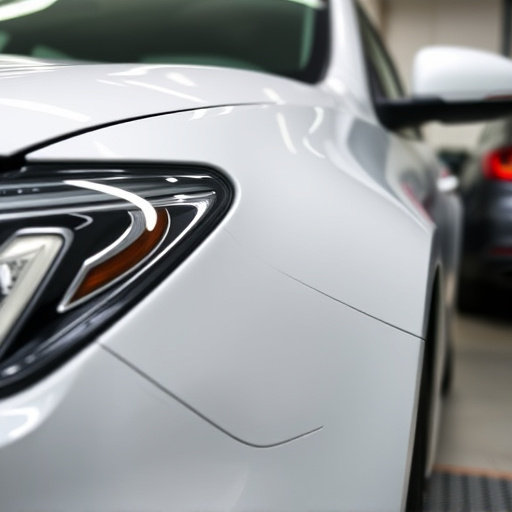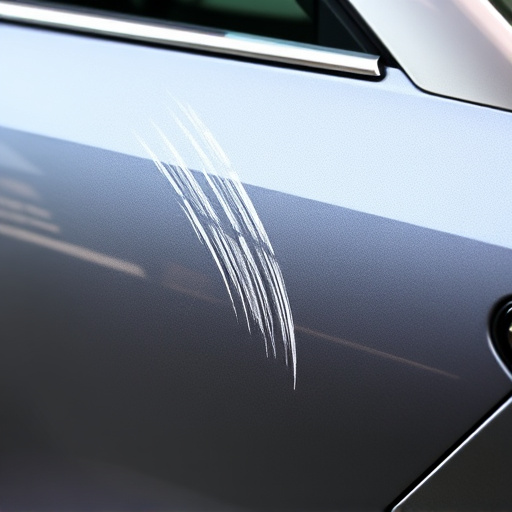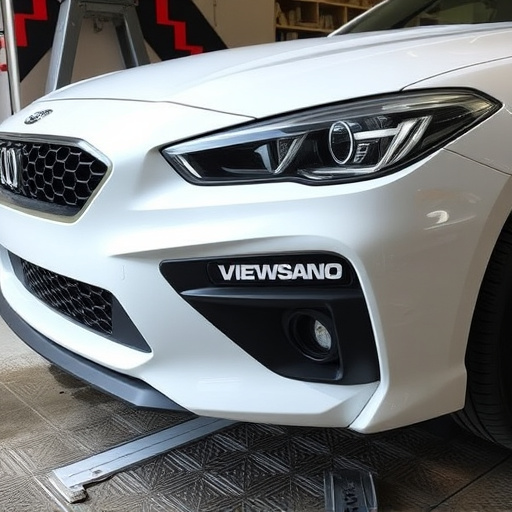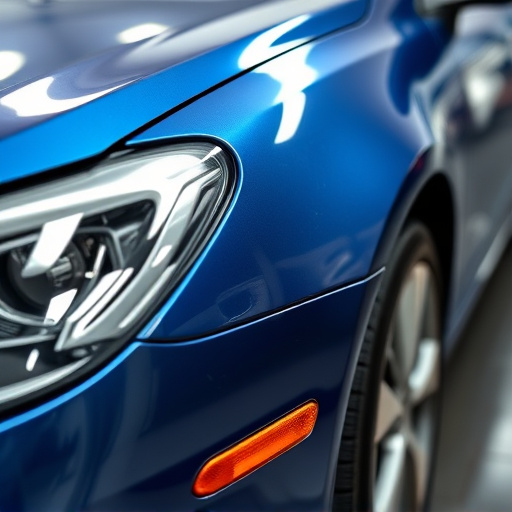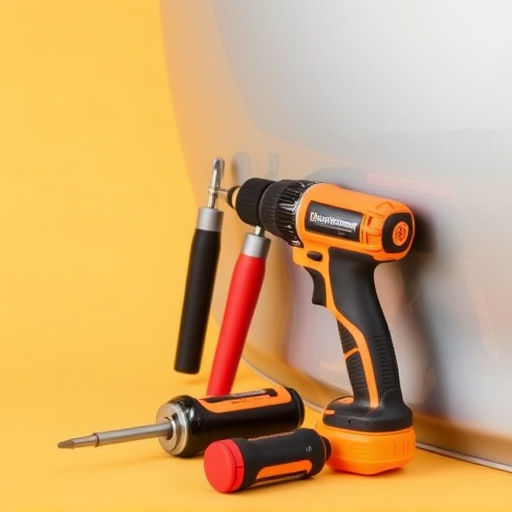Electronic diagnostics collision services are vital for repairing electric and hybrid vehicles, addressing complex systems like battery management and communication errors. Advanced tools enable precise repairs, including paintless dent repair, minimizing damage and costs. As autonomous driving evolves, these diagnostics enhance safety, efficiency, and driver experience, ensuring optimal vehicle performance post-collision.
In today’s electric and hybrid vehicle landscape, effective electronic diagnostics collision services are paramount. This article explores the intricate world of electronic diagnostics in electric vehicles (EVs), highlighting their unique challenges and advancements. We delve into the critical role of collision services specializing in hybrid cars, where precise techniques and specialized tools are essential for efficient repairs. By understanding these facets, automakers and service providers can ensure optimal vehicle performance and customer satisfaction.
- Understanding Electronic Diagnostics in Electric Vehicles
- The Role of Collision Services for Hybrid Cars
- Advanced Troubleshooting Techniques for Efficient Repairs
Understanding Electronic Diagnostics in Electric Vehicles
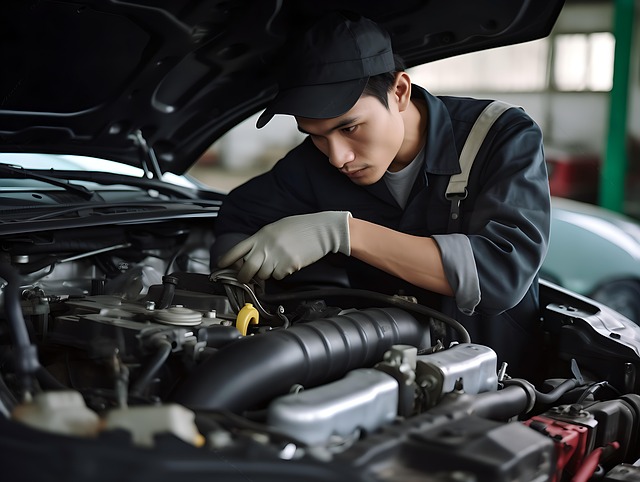
Electronic diagnostics play a pivotal role in understanding and addressing issues within electric and hybrid vehicles. Unlike traditional internal combustion engines, these advanced powertrains rely heavily on intricate networks of sensors, controllers, and electronics to function efficiently and safely. When an automotive collision repair occurs, specialized tools are employed to scan these systems for any codes or anomalies indicative of potential problems. This data-driven approach allows technicians to accurately diagnose issues, whether it’s a faulty battery management system, abnormal motor performance, or communication errors between components.
By integrating electronic diagnostics into collision services, repair shops can offer more comprehensive solutions tailored to the unique requirements of electric vehicles (EVs) and hybrids. The process involves not just physical repairs but also recalibrating computer systems to ensure optimal performance and range. Furthermore, with advancements in autonomous driving technologies, proper electronic diagnostics become even more critical, as they directly impact vehicle safety, efficiency, and overall driver experience, particularly when considering vehicle paint repair and restoration after a collision.
The Role of Collision Services for Hybrid Cars
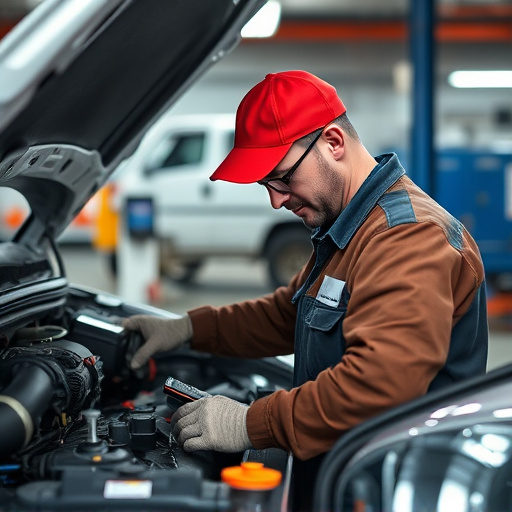
In the rapidly evolving automotive landscape, electric and hybrid vehicles are leading the charge toward a sustainable future. As these innovative cars become more prevalent on our roads, specialized services like electronic diagnostics collision play an increasingly critical role in their maintenance and repair. When it comes to hybrid cars, collision services go beyond the conventional auto glass repair or car damage repair; they demand a deep understanding of the vehicle’s complex electrical systems.
Electronic diagnostics collision experts are equipped with advanced tools and training to handle the intricate repairs these vehicles require. Unlike traditional auto repair services, which primarily focus on internal combustion engines, hybrid technicians must navigate the delicate interplay between electric motors, batteries, and other advanced components. This specialized knowledge ensures that any collision-related damage is not just visually repaired but also electronically calibrated to maintain the optimal performance and efficiency of the vehicle, encompassing aspects like auto glass replacement, battery restoration, and seamless integration of faulty systems.
Advanced Troubleshooting Techniques for Efficient Repairs
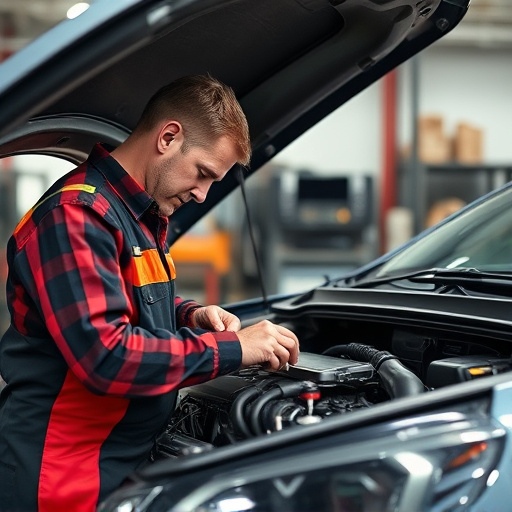
In the realm of electronic diagnostics collision services for electric and hybrid vehicles, advanced troubleshooting techniques have become indispensable. These cutting-edge methods enable technicians to efficiently diagnose complex issues that may be hidden within sophisticated vehicle systems. By leveraging powerful diagnostic tools, such as scan tools, oscilloscopes, and specialized software, repair professionals can swiftly identify faulty components or sensor readings, leading to more accurate and timely repairs.
Moreover, these techniques facilitate innovative solutions like paintless dent repair, which minimizes damage to the vehicle’s exterior, preserving its aesthetic appeal. Similarly, in bumper repair, advanced troubleshooting ensures that only necessary parts are replaced, reducing waste and lowering costs for both customers and service providers. This level of precision is particularly crucial for electric and hybrid vehicles, where intricate electrical systems demand meticulous care during the repair process.
Electronic diagnostics collision services are transforming the way we approach repairs for electric and hybrid vehicles. By leveraging advanced troubleshooting techniques, these services ensure efficient and effective repairs, addressing the unique challenges posed by complex e-mobility systems. As the adoption of electric and hybrid cars continues to grow, specialized collision centers equipped with cutting-edge diagnostic tools become increasingly vital, providing peace of mind for vehicle owners and contributing to a more sustainable future.


